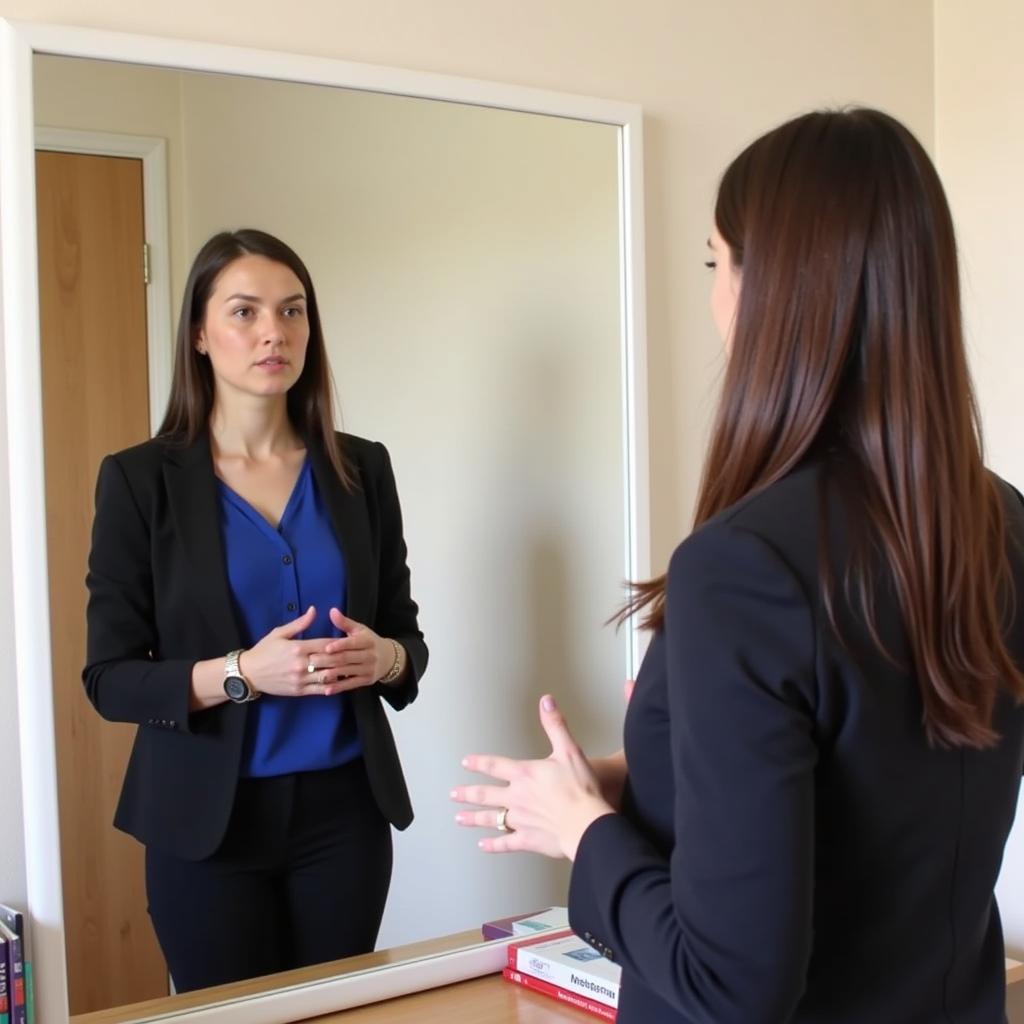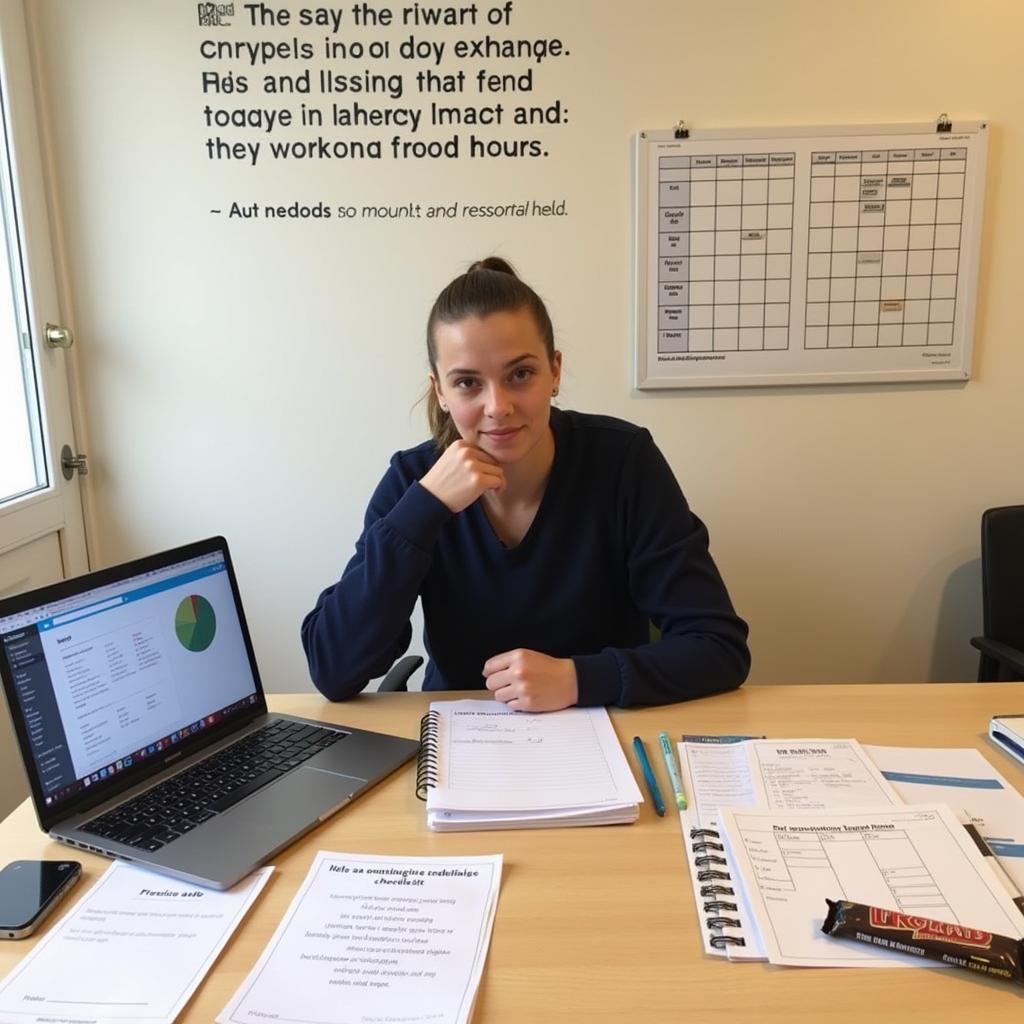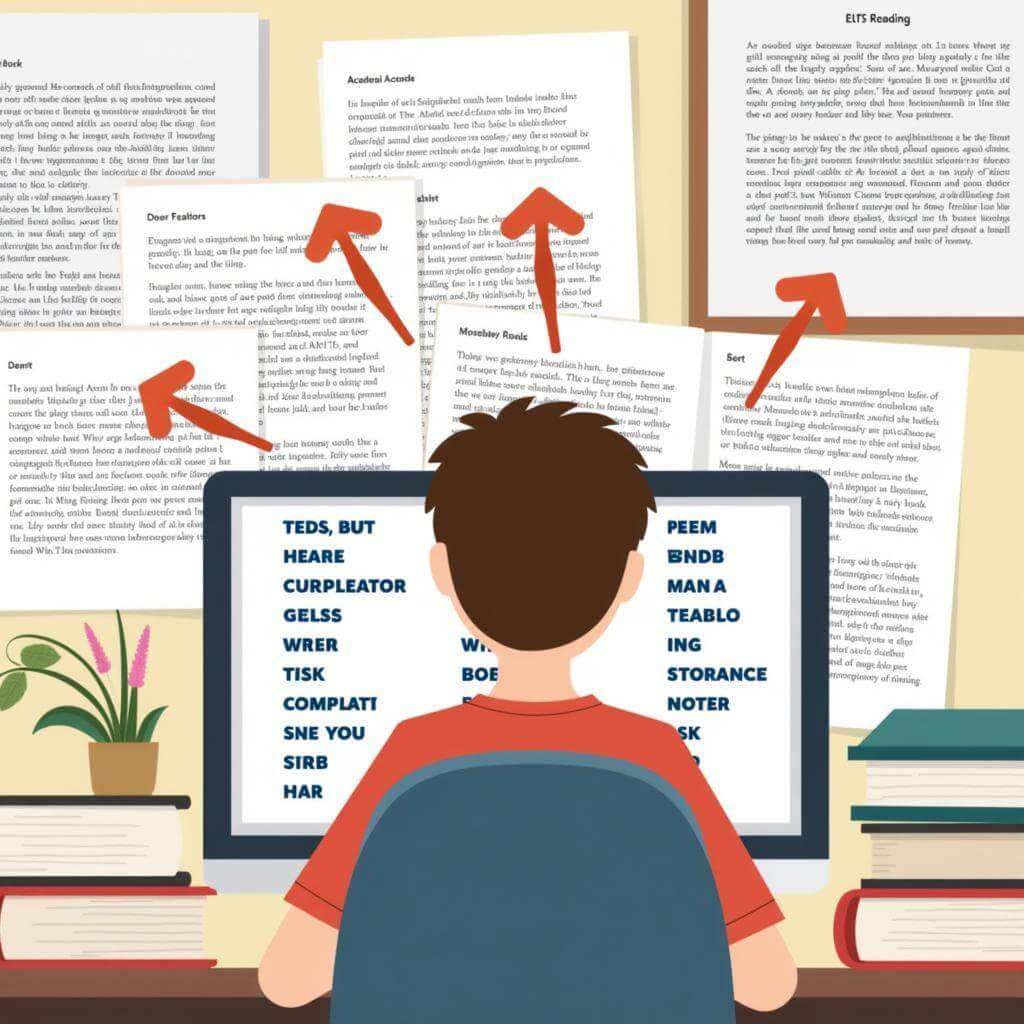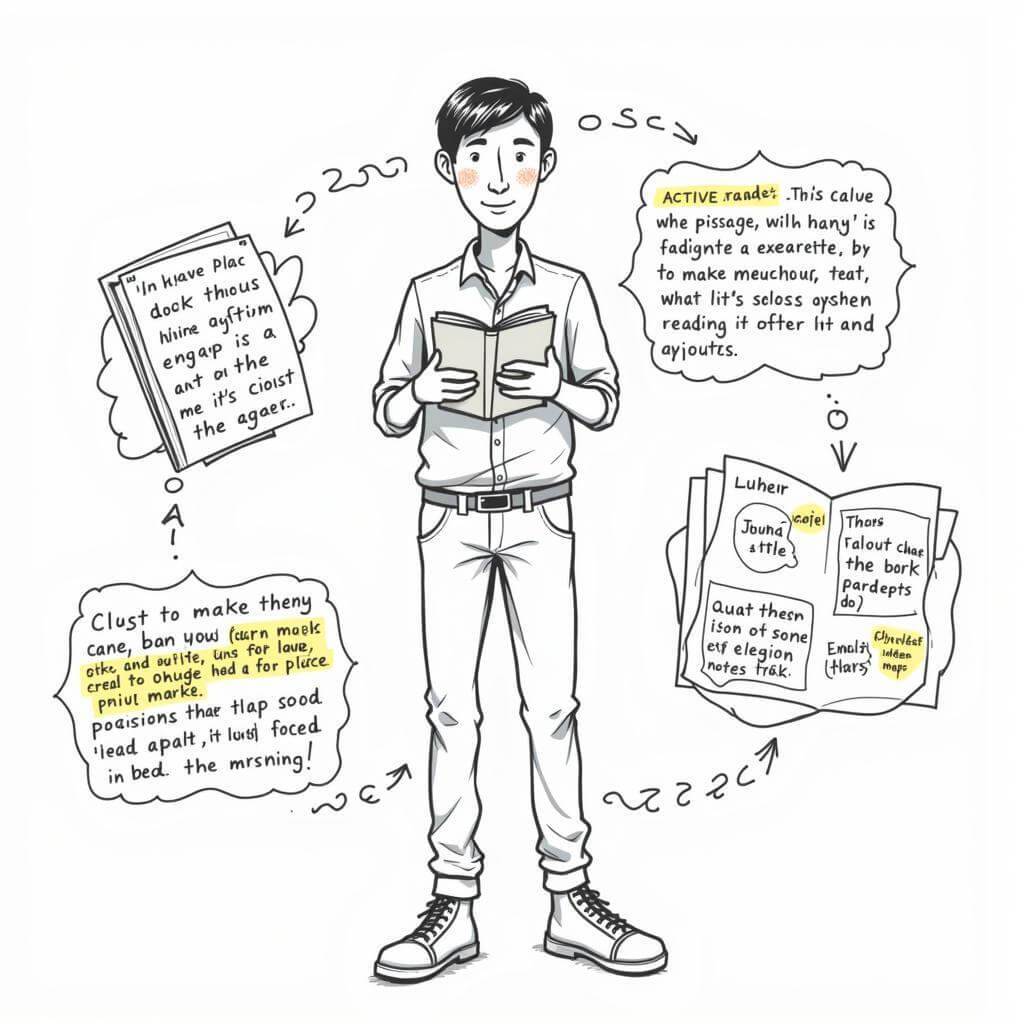Preparing for the IELTS Speaking test without a partner can be challenging, but it’s far from impossible. With the right techniques and a bit of creativity, you can significantly improve your speaking skills on your own. This guide will explore various methods to help you practice speaking effectively, even when you don’t have someone to converse with.
Nội dung bài viết
- Understanding the Importance of Solo Practice
- Effective Solo Speaking Strategies
- 1. Record and Analyze Your Speech
- 2. Use Language Learning Apps
- 3. Talk to Yourself
- 4. Use a Mirror
- 5. Shadowing Technique
- 6. Create Imaginary Scenarios
- 7. Use Text-to-Speech and Speech-to-Text Tools
- Time Management in Solo Practice
- Overcoming Challenges in Solo Practice
- Conclusion
- FAQs
Understanding the Importance of Solo Practice
Before diving into the strategies, it’s crucial to recognize the value of practicing alone. Solo practice allows you to focus on your specific weaknesses, experiment with different speaking styles, and build confidence at your own pace. It’s an essential complement to partner practice and can be incredibly effective when done correctly.
 Solo practice for IELTS speaking preparation
Solo practice for IELTS speaking preparation
Effective Solo Speaking Strategies
1. Record and Analyze Your Speech
One of the most powerful tools for solo practice is your smartphone or computer’s recording function. Here’s how to make the most of it:
- Choose a topic from the IELTS speaking test syllabus.
- Speak on the topic for 1-2 minutes, recording yourself.
- Listen to the recording and analyze your performance.
- Take notes on areas for improvement, such as pronunciation, fluency, or grammar.
- Re-record yourself, focusing on the areas you’ve identified for improvement.
This method allows you to be your own critic and track your progress over time. It’s particularly useful for improving fluency for IELTS speaking part 1.
2. Use Language Learning Apps
Many language learning apps offer speaking practice features that can be incredibly helpful for IELTS preparation:
- Duolingo: Offers speaking exercises and pronunciation practice.
- ELSA Speak: Focuses on accent reduction and pronunciation improvement.
- Tandem: Connects you with language exchange partners for text, audio, and video chat.
While these apps can’t fully replicate the IELTS speaking test, they provide valuable opportunities to practice speaking English regularly.
3. Talk to Yourself
As strange as it may sound, talking to yourself is an excellent way to practice speaking without a partner. Try these techniques:
- Narrate your daily activities in English.
- Give yourself a pep talk before an important event.
- Explain complex concepts out loud as if teaching someone else.
This method helps you think in English and improves your ability to express ideas spontaneously, which is crucial for speaking fluently without hesitation.
4. Use a Mirror
Speaking in front of a mirror can help you become more aware of your facial expressions and body language:
- Stand in front of a mirror.
- Choose an IELTS speaking topic.
- Speak on the topic for 2 minutes, maintaining eye contact with yourself.
- Pay attention to your facial expressions and gestures.
- Practice looking confident and engaged.
This technique not only improves your speaking skills but also helps you speak more confidently during the actual test.
 Mirror practice for IELTS speaking confidence
Mirror practice for IELTS speaking confidence
5. Shadowing Technique
Shadowing is a powerful method to improve your pronunciation and intonation:
- Choose an English audio clip or video (preferably with a transcript).
- Listen to a short segment (5-10 seconds) while reading the transcript.
- Play the segment again, this time repeating the words simultaneously with the speaker.
- Focus on matching the speaker’s rhythm, intonation, and pronunciation.
- Repeat the process until you can shadow the entire clip comfortably.
This technique is particularly effective for improving your accent and speaking rhythm.
6. Create Imaginary Scenarios
Engage in role-play scenarios to practice different types of conversations:
- Pretend you’re giving directions to a tourist.
- Imagine you’re in a job interview and practice answering common questions.
- Act as if you’re explaining a complex topic to a friend.
This method helps you prepare for the variety of topics that may come up in the IELTS speaking test, especially when handling rapid-fire questions in part 3.
7. Use Text-to-Speech and Speech-to-Text Tools
Leverage technology to enhance your speaking practice:
- Use text-to-speech tools to hear proper pronunciation of words or sentences.
- Employ speech-to-text tools to check if your pronunciation is clear enough to be accurately recognized.
These tools can provide immediate feedback on your pronunciation and help you identify areas for improvement.
Time Management in Solo Practice
Effective time management is crucial when practicing speaking alone. Here are some tips to make the most of your solo practice time:
- Set specific goals for each practice session.
- Use a timer to simulate test conditions.
- Allocate time for different aspects of speaking (fluency, vocabulary, pronunciation).
- Regular, short practice sessions are often more effective than infrequent, long ones.
For more tips on managing speaking time effectively, check out our dedicated guide.
Overcoming Challenges in Solo Practice
Practicing speaking alone can sometimes feel unnatural or demotivating. Here are some ways to overcome these challenges:
- Join online language exchange communities to find speaking partners when needed.
- Reward yourself after completing solo practice sessions to stay motivated.
- Vary your practice methods to keep things interesting.
- Set realistic goals and track your progress to stay encouraged.
“The key to successful solo speaking practice is consistency and self-awareness. By regularly engaging in focused practice and honestly evaluating your performance, you can make significant improvements in your IELTS speaking skills,” says Dr. Emma Thompson, IELTS examiner and language acquisition expert.
 Overcoming challenges in solo IELTS practice
Overcoming challenges in solo IELTS practice
Conclusion
Practicing speaking without a partner for IELTS may seem daunting, but with these strategies, you can effectively improve your skills and confidence. Remember, the key is consistency and variety in your practice methods. By incorporating these techniques into your daily routine, you’ll be well-prepared for the IELTS speaking test, even without a regular speaking partner. Keep challenging yourself, stay motivated, and watch your English speaking skills soar.
FAQs
-
How often should I practice speaking alone for IELTS?
Aim for daily practice, even if it’s just for 15-20 minutes. Consistency is key to improving your speaking skills. -
Can I improve my accent through solo practice?
Yes, techniques like shadowing and using speech recognition tools can help improve your accent and pronunciation. -
How can I stay motivated when practicing speaking alone?
Set small, achievable goals, track your progress, and reward yourself for consistent practice. -
Is it normal to feel awkward when talking to myself?
Absolutely! It may feel strange at first, but you’ll become more comfortable with practice. Remember, it’s a valuable learning technique. -
How can I simulate the pressure of the actual IELTS speaking test?
Use a timer, practice with unfamiliar topics, and record yourself to create a sense of pressure similar to the test environment. -
Are language exchange apps a good substitute for face-to-face practice?
While not a perfect substitute, they can be very helpful for practicing conversation skills and getting feedback from native speakers. -
How can I tell if I’m making progress in my solo speaking practice?
Regularly record yourself and compare recordings over time. You should notice improvements in fluency, pronunciation, and confidence.


